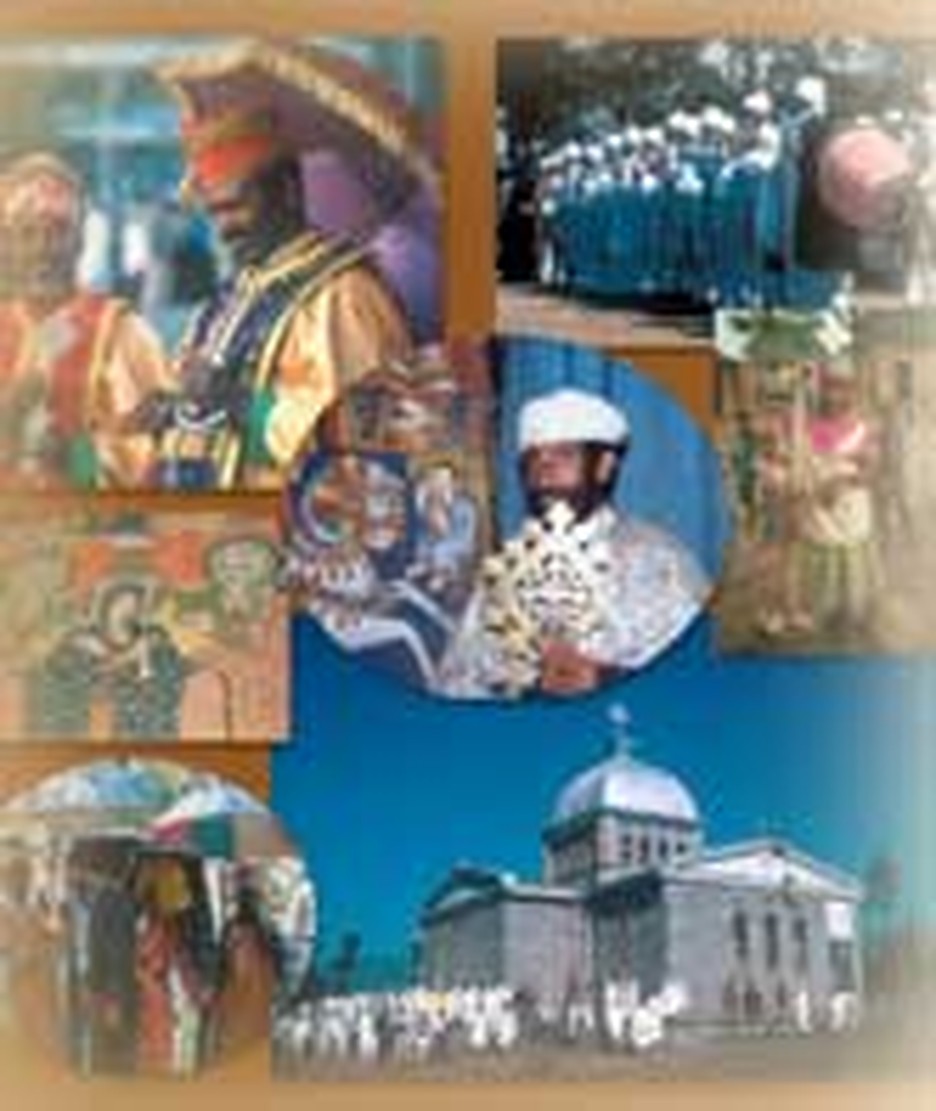
In the twentieth century, Christianity in Africa exploded from an estimated population of eight or nine million in 1900 (8 to 9%) to some 335 million in 2000 (45%), marking a shift in the “center of gravity of Christianity” from the West to Latin America, parts of Asia and Africa. We thank the Overseas Ministries Study Center (OMSC) for the information and material used in this issue. Statistical information provided by David Barrett.
At the turn of the 20th century, Christianity was virtually nonexistent in many parts of Africa but is now the faith of the majority, as the following figures demonstrate:
|
% Christians in 1900
|
% Christians in 2000
|
Other African countries with a significant Christian population are:
Seychelles 96.9%
Saint Helena 96.2%
Sao Tomé & Principe 95.8%
Cape Verde Islands 95.1%
Namibia 92.3%
Burundi 91.7%
Congo-Brazzaville 91.2%
Lesotho 91%
Gabon 90.6%
Uganda 88.7%
South Africa 83.1%
Rwanda 82.7%
Spanish North Africa 80.3%
Equatorial Guinea 76.6%
Central African Republic 67.8%
Zimbabwe 67.5%
Botswana 59.9%
Cameroon 54.2%
Ethiopia 57.7%
Ghana 55.4%
Eritrea 50.5%
Tanzania 50.4%
Madagascar 49.5%
Nigeria 45.9%
Togo 42.6%
The African Story: Amazing Growth, Unthinkable Persecution
In the 20th century alone, there have been some 1.8 million Christian martyrs in Africa. This figure does not take into account the estimated 600,000 Christians who have died in the genocidal conflicts in Rwanda and Burundi, nor does it fully account for the more than two million deaths in the 17 years of Sudanese civil war waged by the militant Islamist government on the predominantly Christian population of the south.
The Dictionary of African Christian Biography
The spread of the faith in Africa represents perhaps the most dramatic advance in all Christian history, and yet the names and stories of persons chiefly responsible are largely unknown. The Dictionary of African Christian Biography (DACB), sponsored by the Overseas Ministries Study Center in New Haven, Connecticut, is an effort to rectify this by gathering stories of the founders and builders of the African church and offering them free over the internet. We consider this a most significant project, and Christian History Institute was eager to help. So last year we assisted in the advance of The Dictionary of African Christian Biography. We urge you to visit their website and make use of the materials: www.dacb.org.
An Historical Overview by Michèle Sigg of DACB
The Christian Church has been continuously present on the African continent since the days of Christ. While the history of African Christianity is multifaceted in its regional development, it is, nevertheless, possible to discern four general phases in the planting and maturing of the African Church.
Part 1: The Genesis of the Church The Ancient Church in Egypt and Ethiopia
During the first three centuries after Christ, Africa was a major center of Christian thought and activity. Origen was from Alexandria in Egypt, while Tertullian and Augustine were from North Africa. By the end of the third century, Christians in the eastern Magrib were in the majority. Sadly, Christianity in much of North Africa virtually disappeared as Islam advanced in the following centuries. In Egypt and in Ethiopia, however, it had taken deep root, and was thus able to survive the Islamic juggernaut and continues to this day.
Part 2: The Continuation of the Sub-Saharan Church The European Contribution
While the Portuguese introduced a Catholic form of Christianity to the Kongo Kingdom (central Africa) between the sixteenth and eighteenth centuries, there were few, if any, lasting results. Only at the end of the eighteenth century did the Evangelical Revival begin to bring to Africa an influx of missionaries whose labors would produce the first fruits of an enduring Christian presence in Sub-Sahara Africa.
With Western civilization came not only the good intentions of Christianity, however, but also the appallingly devastating transatlantic slave trade and the inevitable excesses of commercial greed manifest in the white foreigners’ insatiable appetite for Africa’s natural resources. Before authentic Christianity could sink its roots deep into African soil, these evils had to be fought.
Two great British champions from the nineteenth century were Thomas Fowell Buxton and Henry Venn, neither of whom ever set foot on African soil. While Buxton sought to fully eradicate the slave trade by encouraging local commercial and agricultural initiatives in its place, Venn is responsible for laying down the principles of the “indigenous church” whereby the nascent African church began to come of age.
Part 3: Passing the Mantle The First African Leadership
For the next two hundred years, African Christians had to struggle against racism and Western spiritual imperialism. But, as Venn had written, if the African church were to mature and establish itself, missionaries had to move on once the seed was sown, leaving indigenous leaders to build the church. Samuel Ajayi Crowther was the first African to be appointed bishop by the Anglican Church. He is the subject of our next issue.
Part 4: "Pentecost" The African Church Seeks Its Own Language
The seeds of the Sub-Saharan church had been planted by Western missionaries. Now, as the Gospel spread throughout the nooks and crannies of the continent, African Christianity began to define itself on its own cultural terms. Reformers within the missionary churches as well as independent church leaders called for change in the institutionalized church. This led to both reform, on the one hand, and to the birth of thousands of "African Initiated Churches" (AICs) on the other.


